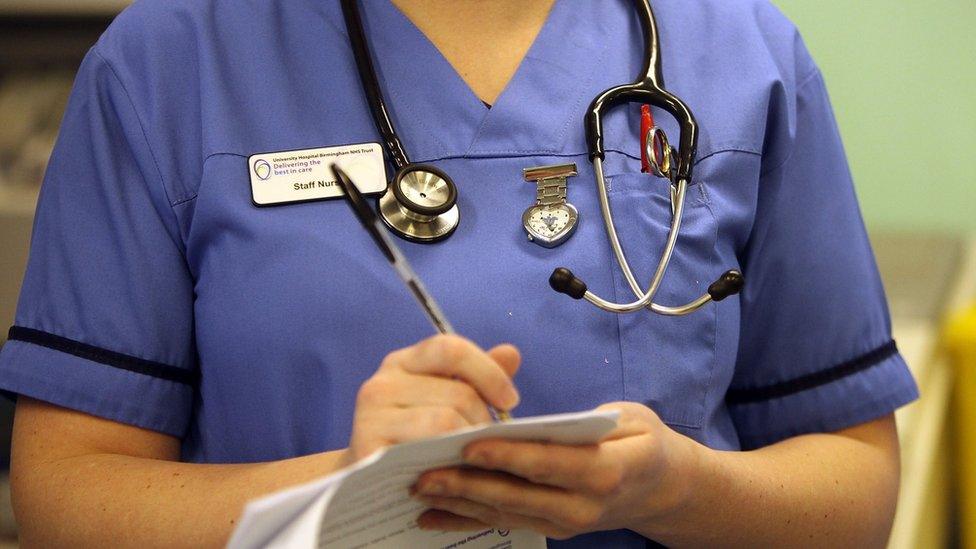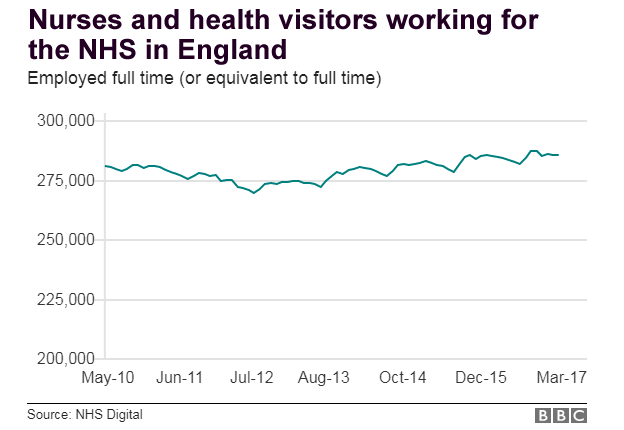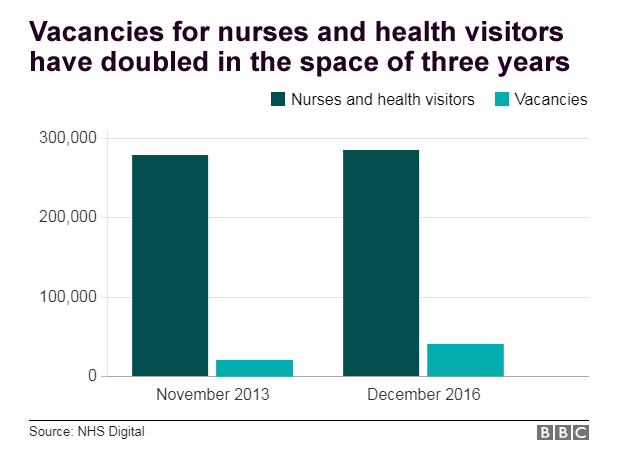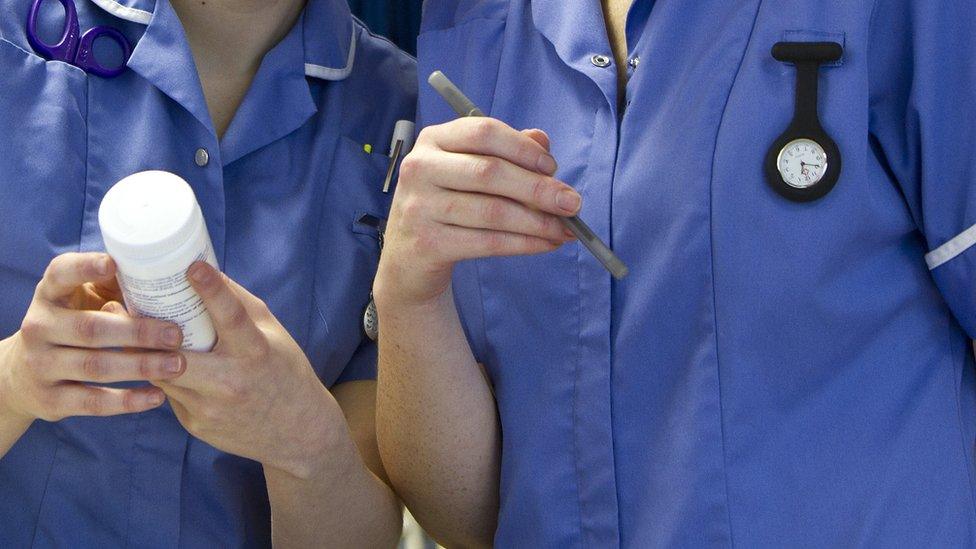Reality Check: Are there more nurses?
- Published

The number of registered nurses and midwives is shrinking, according to figures from regulator the Nursing and Midwifery Council (NMC).
Every practising nurse and midwife must be on the UK register, but not everyone on the register will be practising, or working in the NHS.
However, the government has said that there has been a 13,100 rise in the number of nurses actually working on NHS wards in England since May 2010, when the Conservatives came into power as part of the coalition government.
But this is only true if you look just at nurses working on acute, elderly or general wards.
If you look at all areas of nursing, the number of staff, external - or the equivalent in terms of full-time hours - did increase between May 2010 and March 2017, the latest date we have figures for, but by a more modest 5,000.
Nursing numbers from 2012
To confuse things further, the Health Secretary, Jeremy Hunt, tweeted earlier this month, external that there were 15,000 more nurses since he took up the post, in September 2012.
This is because the overall number of nurses working for the NHS in England fell by almost 10,000 between 2010 and 2012 and then went back up again by just under 15,000 between 2012 and 2017, resulting in that net increase of almost 5,000.

Mental health nurses
This figure includes health visitors, who are qualified nurses.
The overall increase in numbers of nurses working in the NHS masks a net fall in some areas of nursing.
For example, since May 2010, the numbers of community, mental health nurses and specialist learning disability nurses have fallen.
And, meanwhile, the number of nursing posts lying vacant doubled between 2013 and 2016, from 20,000 to 40,000, according to figures from the Royal College of Nursing.
So the gap between how many nurses we have and how many we need has widened.

- Published3 July 2017
